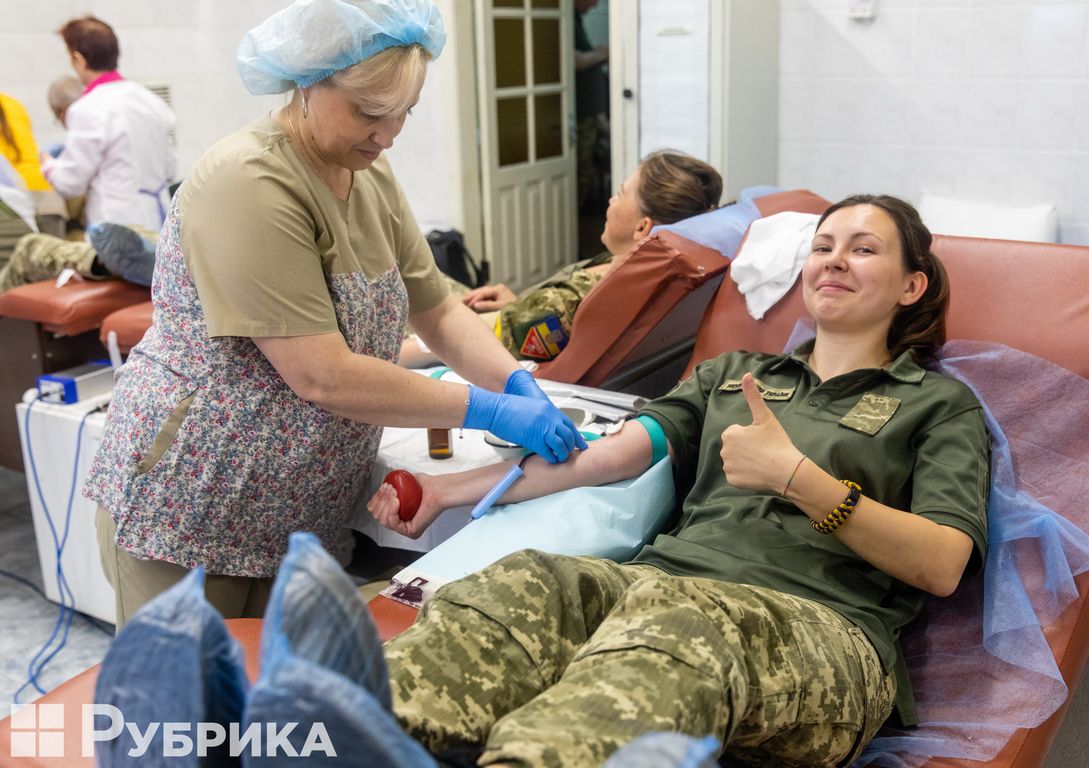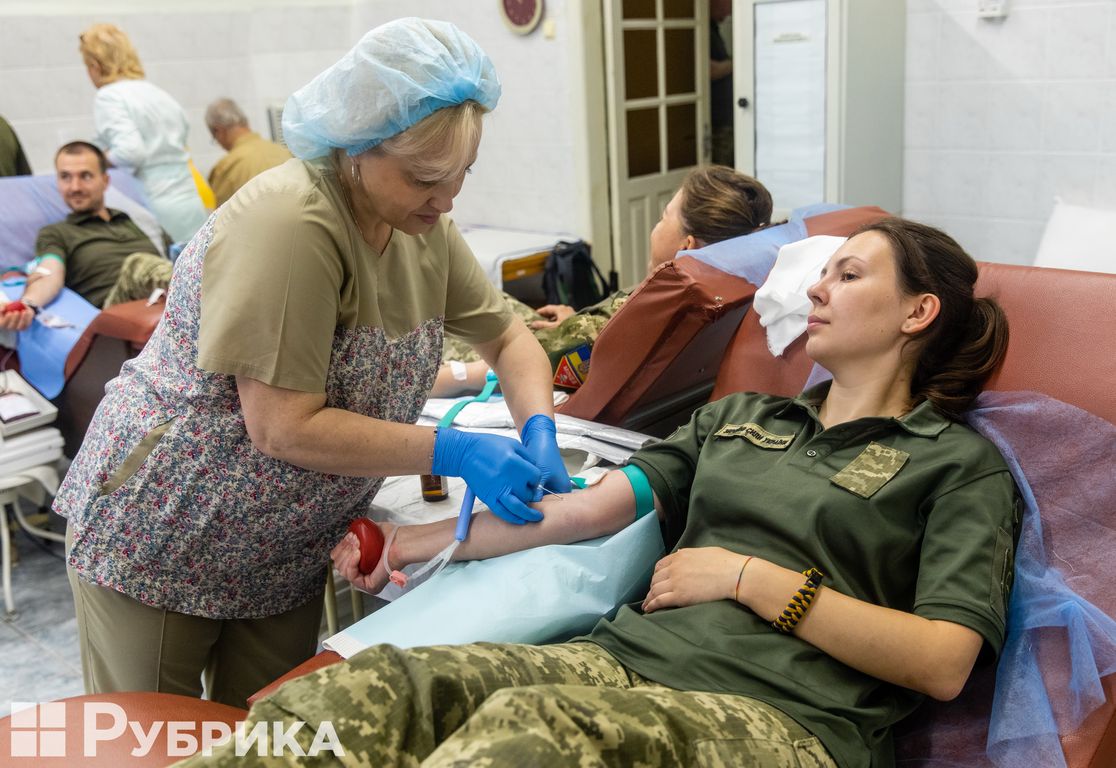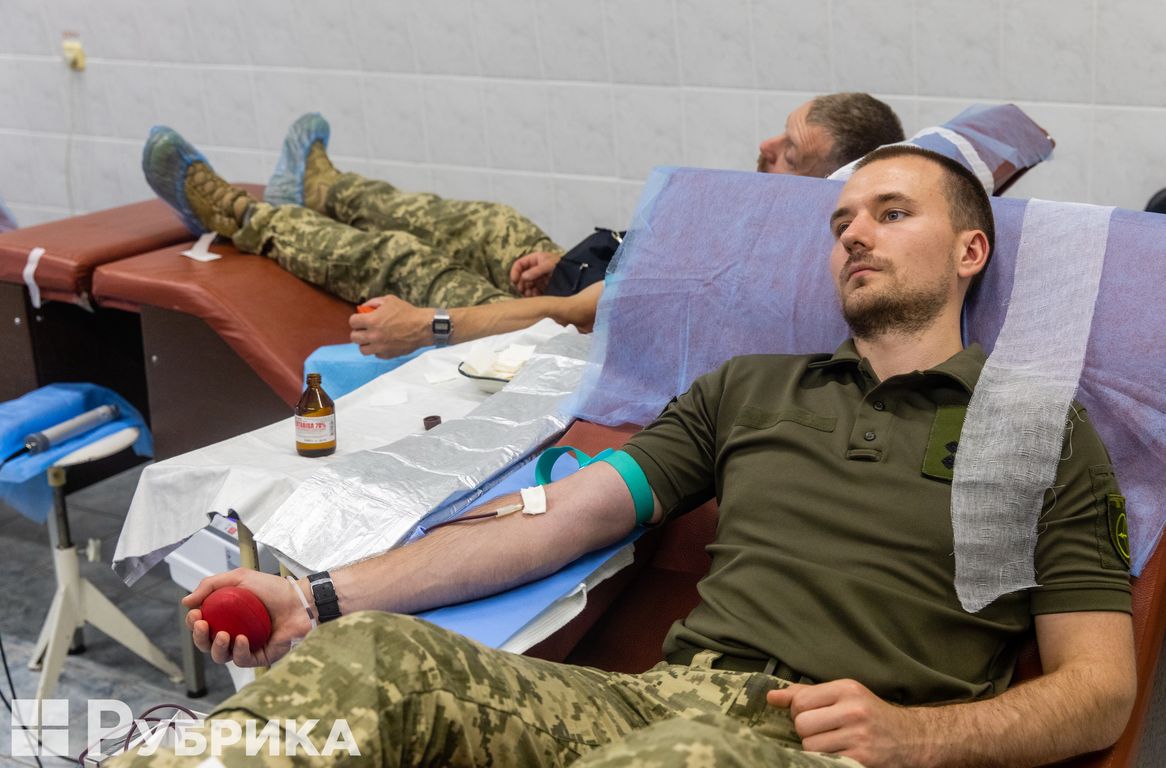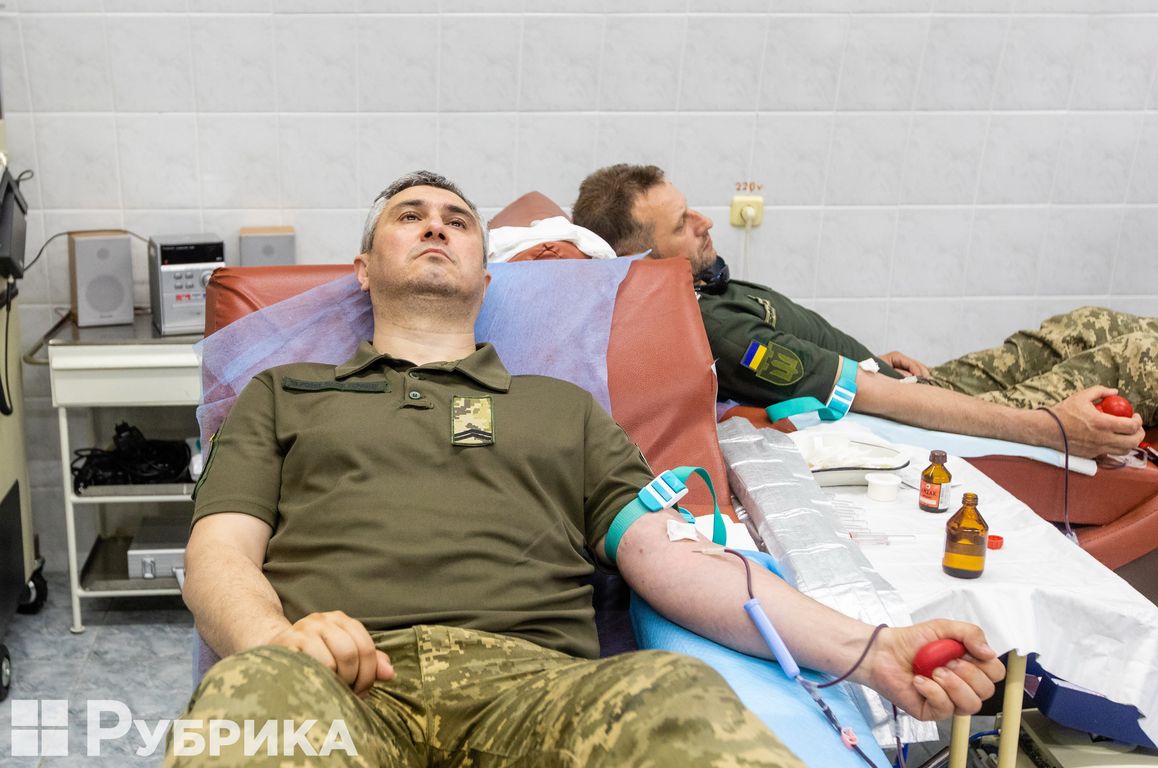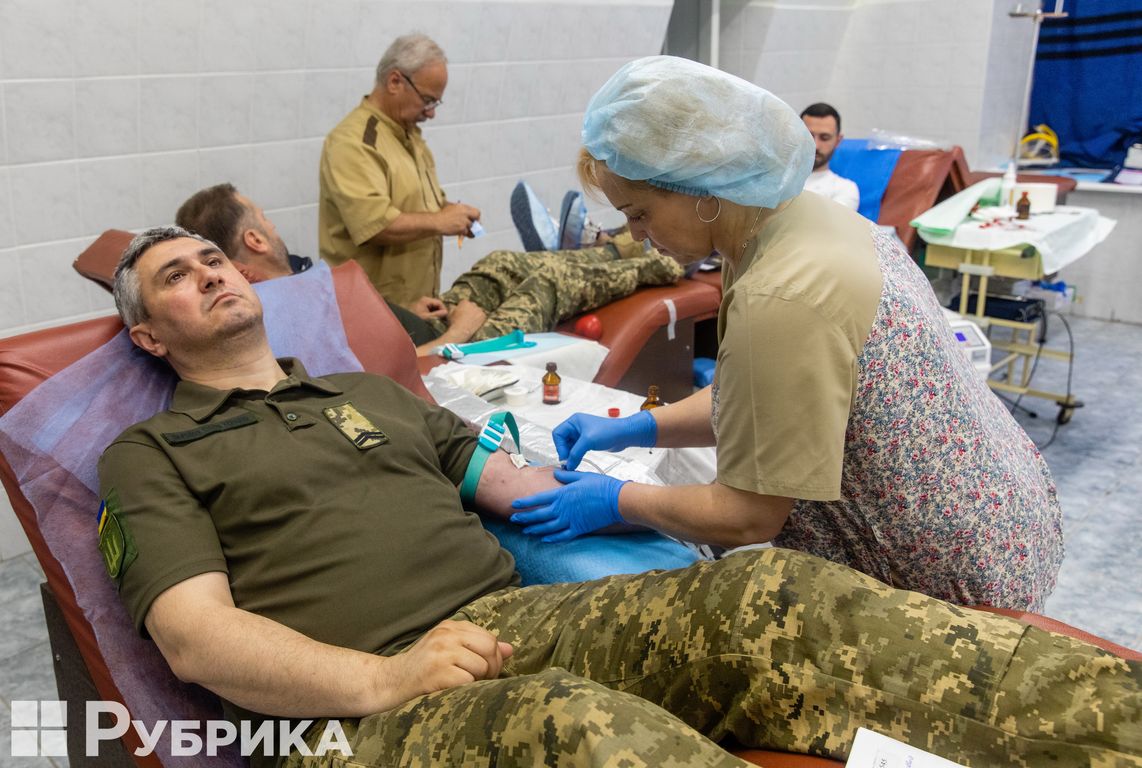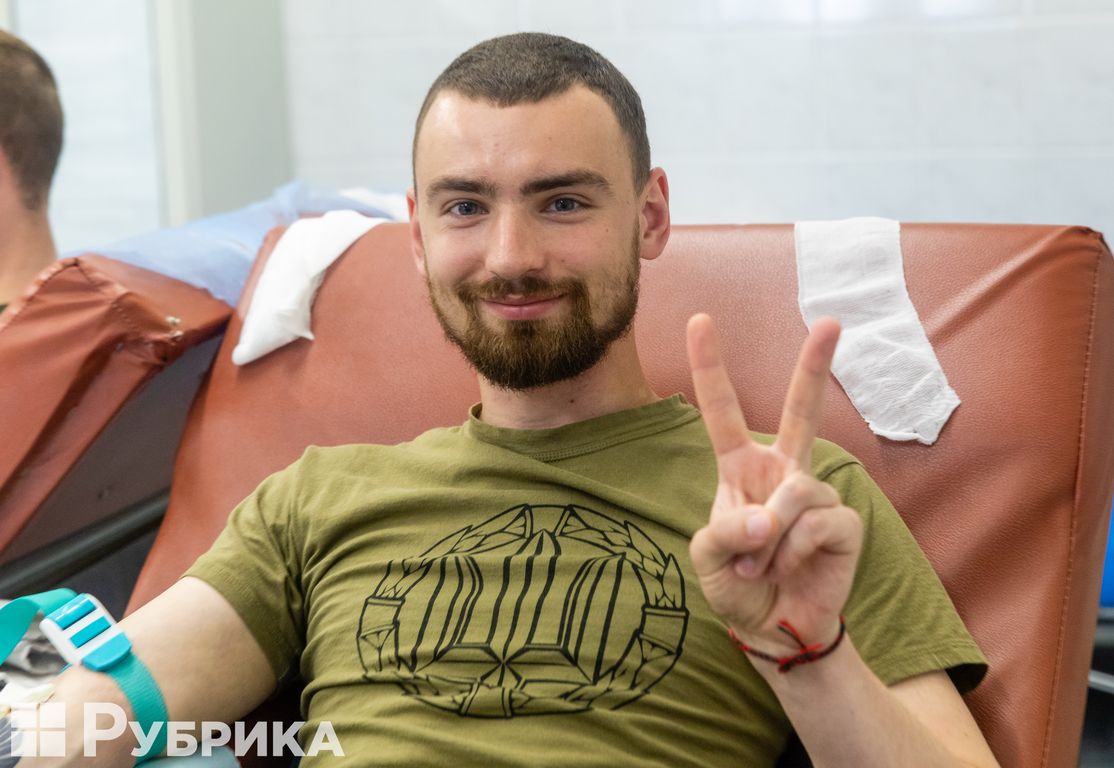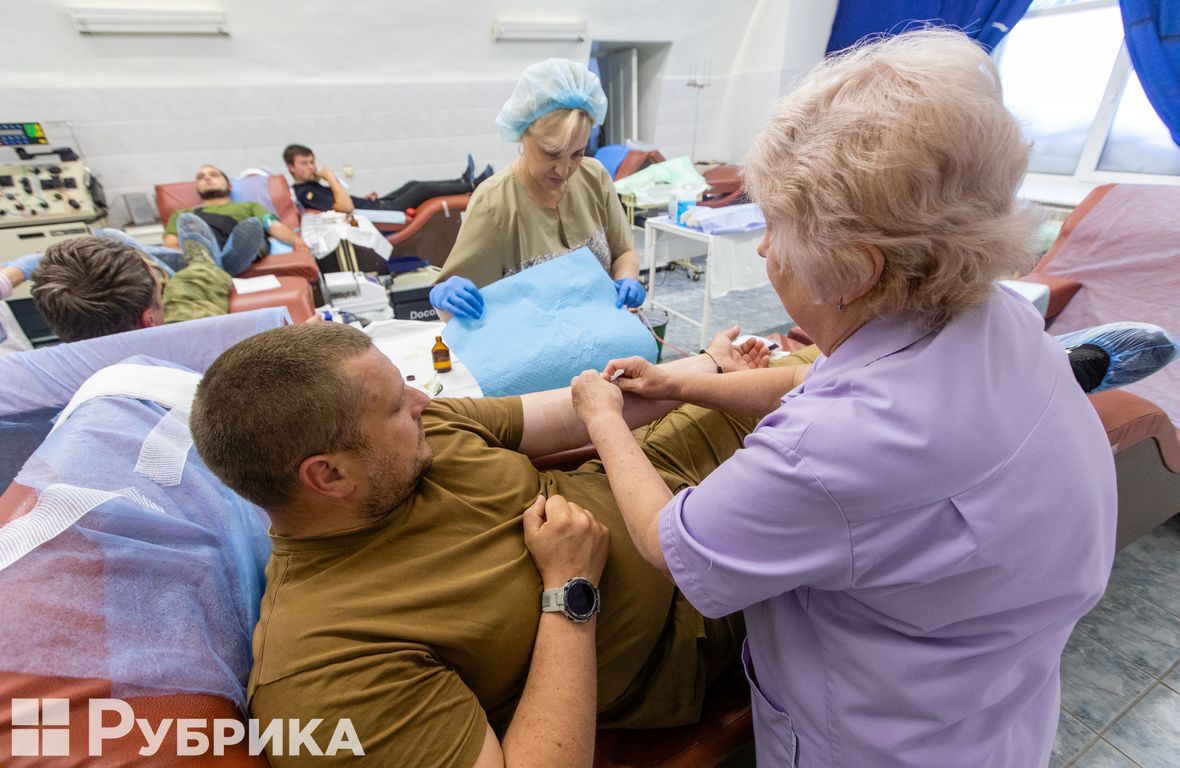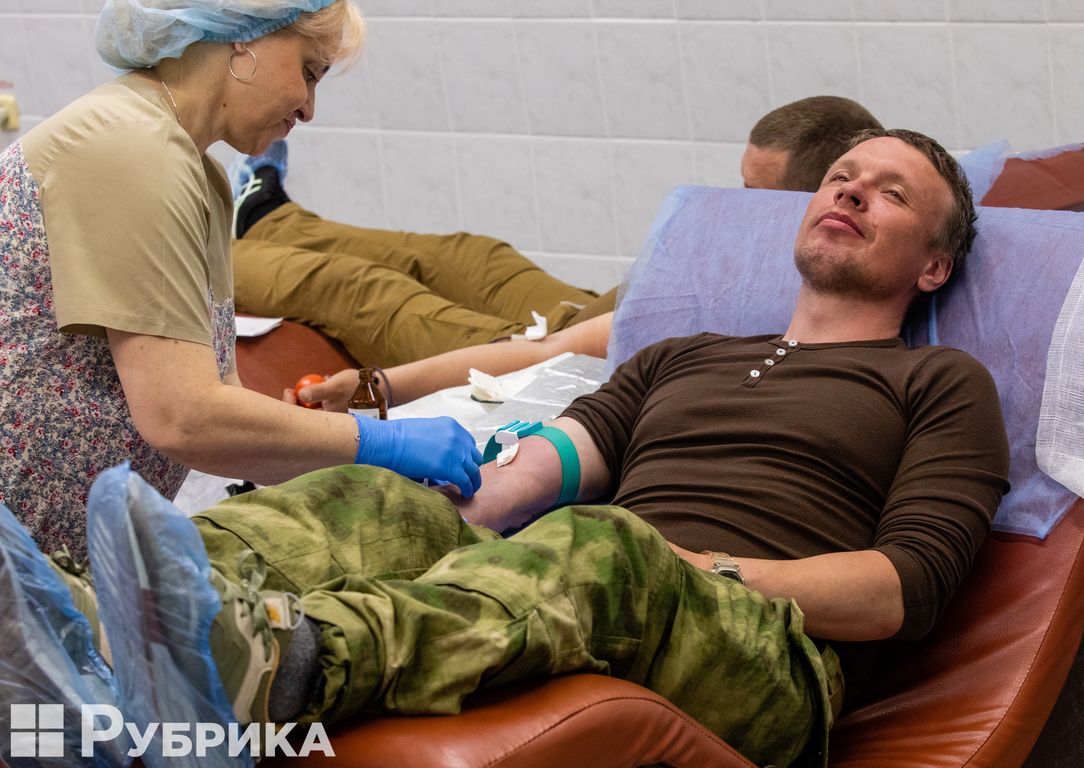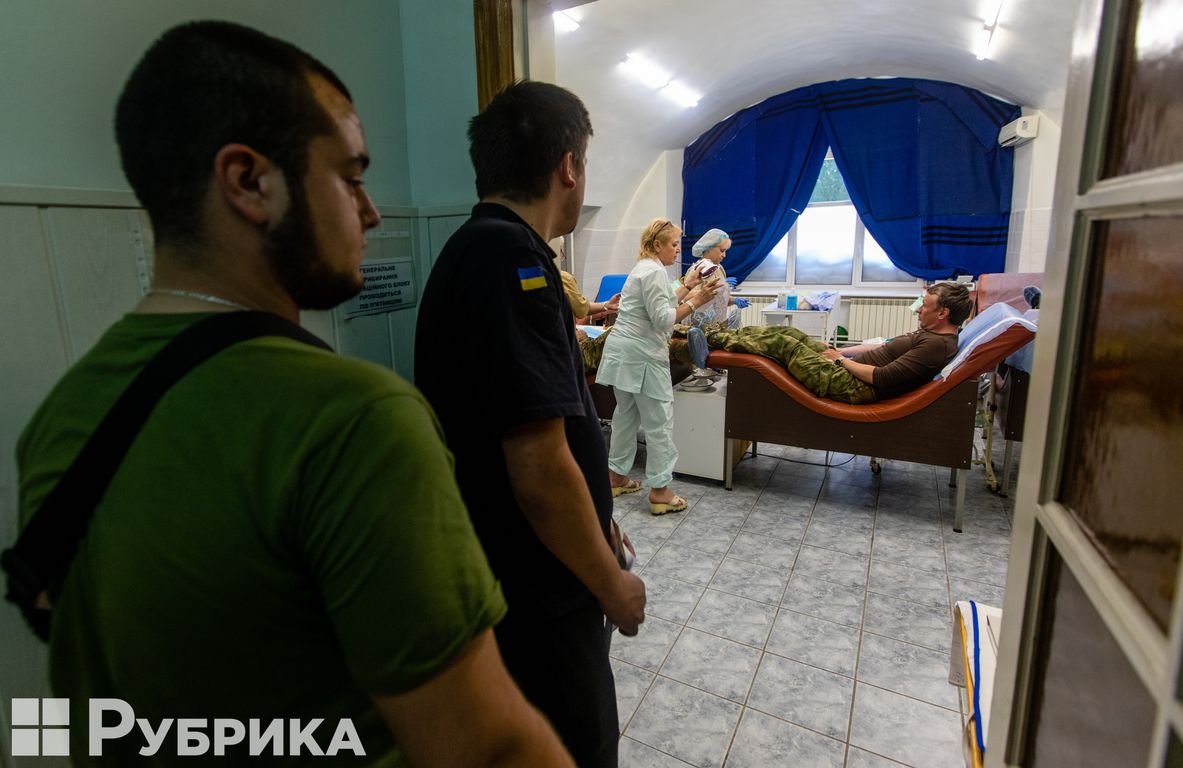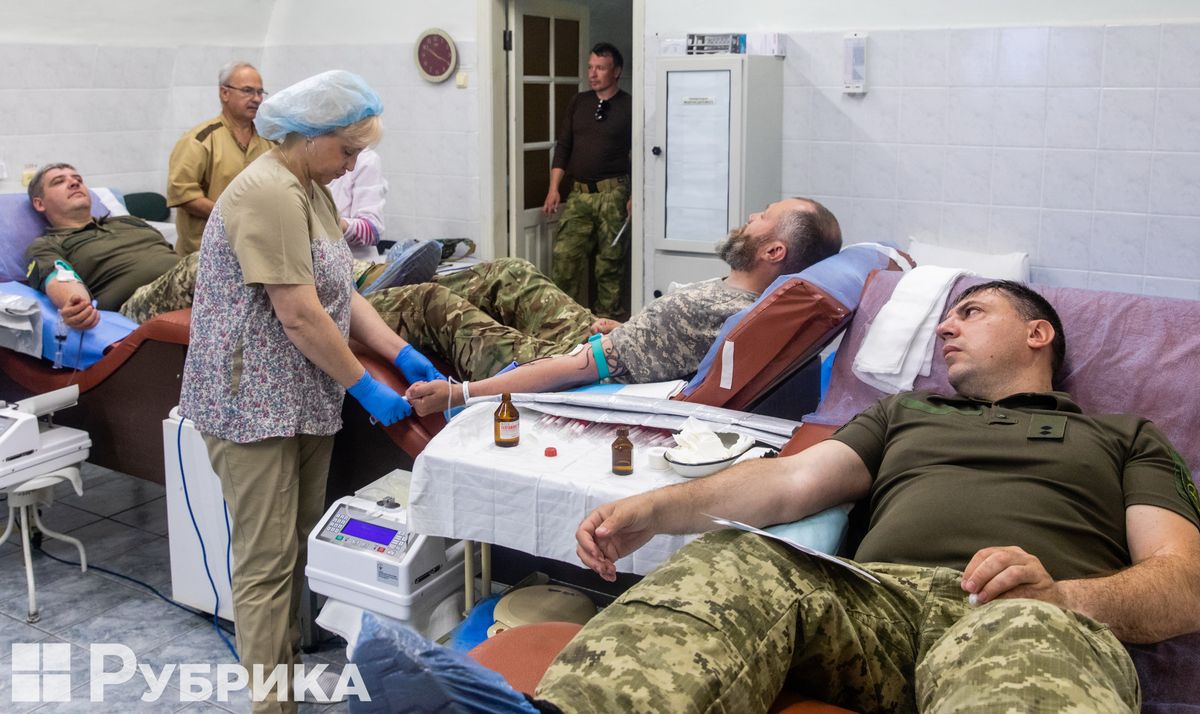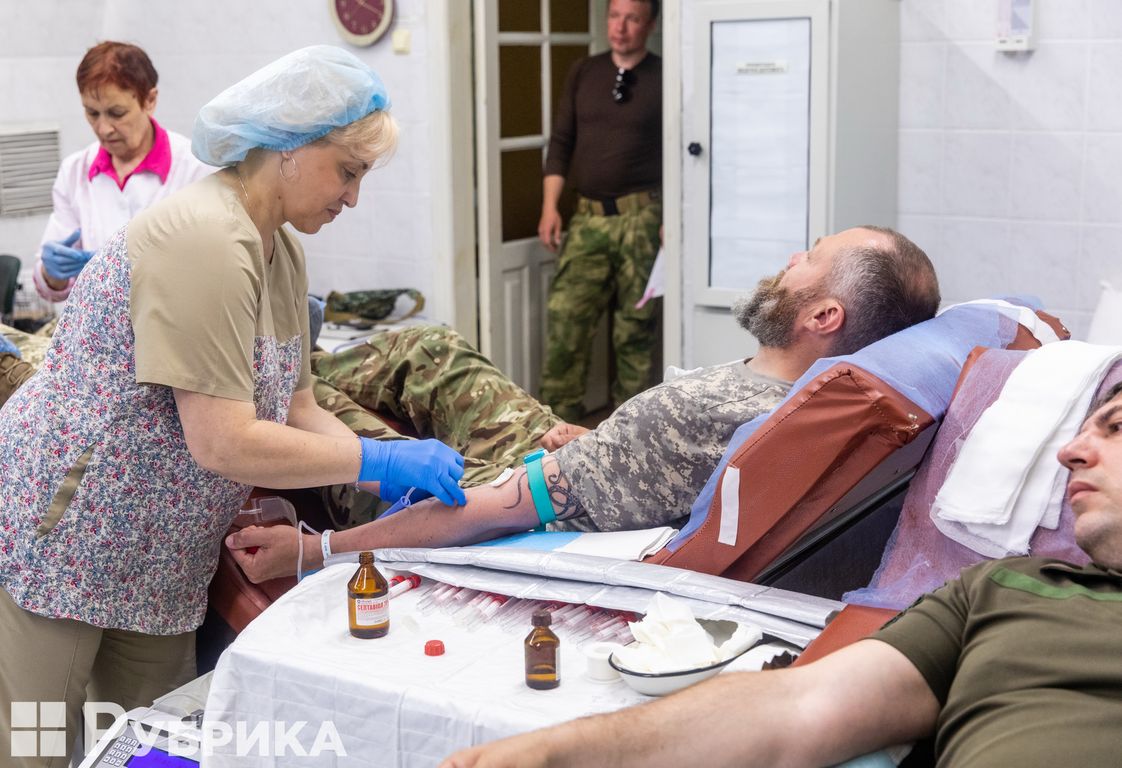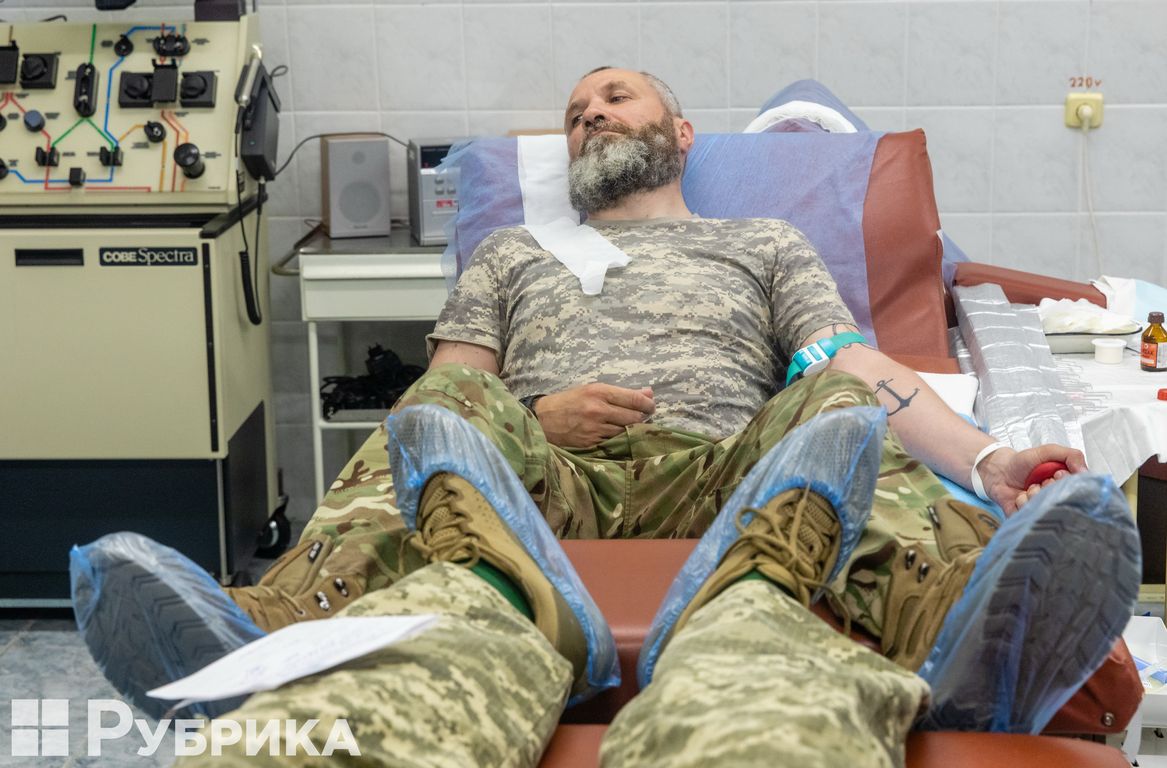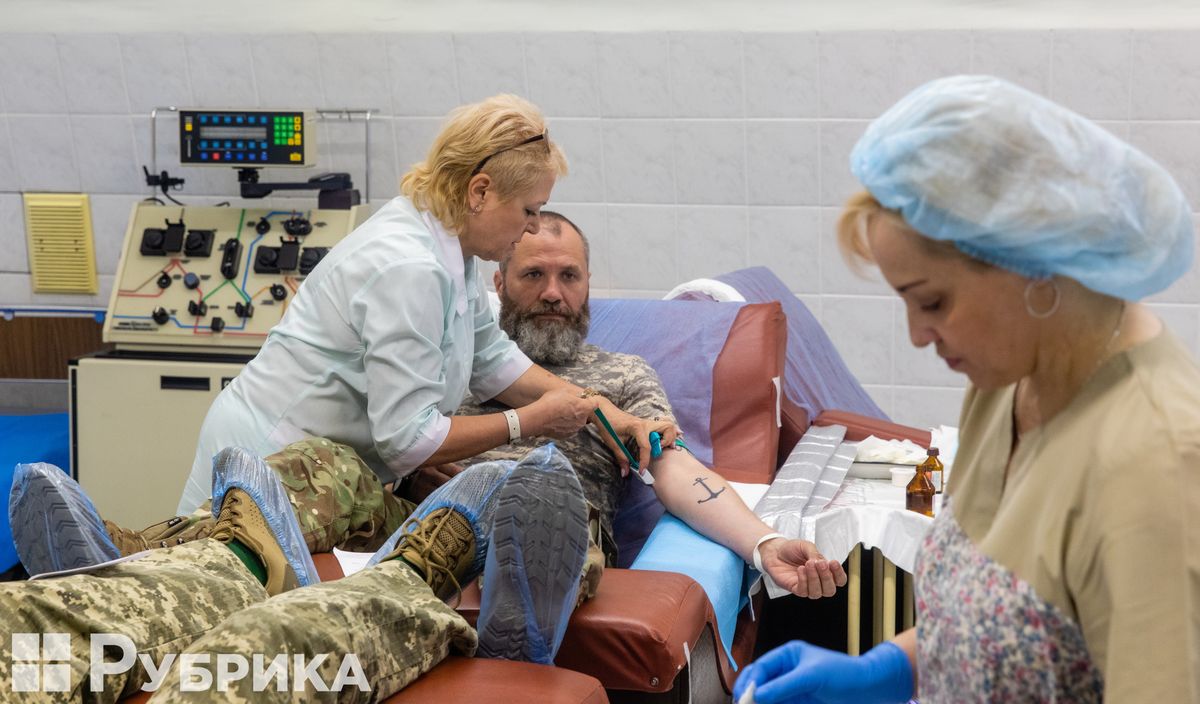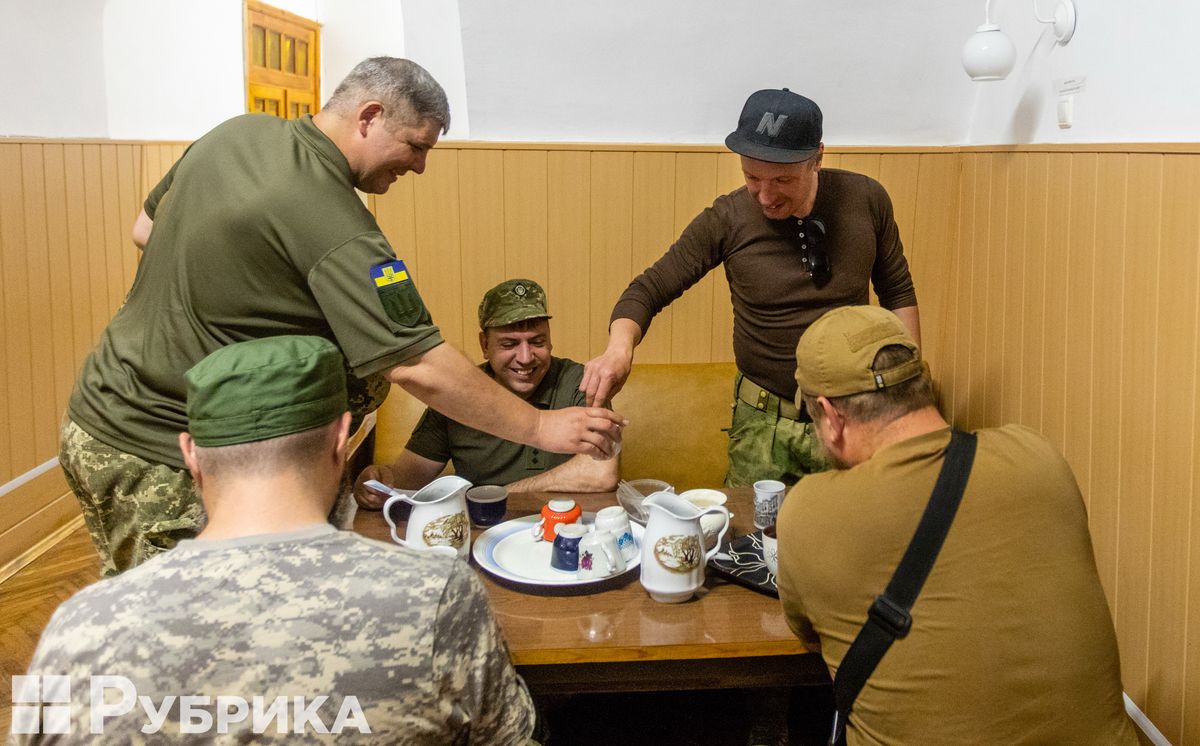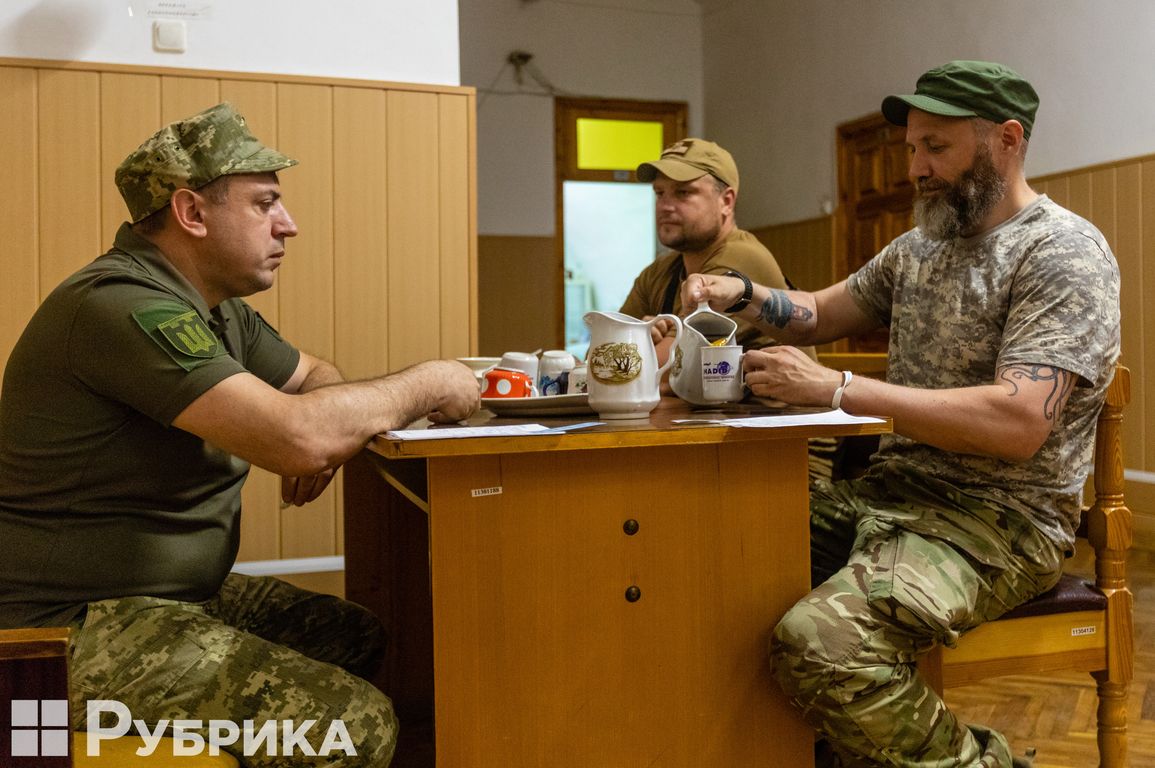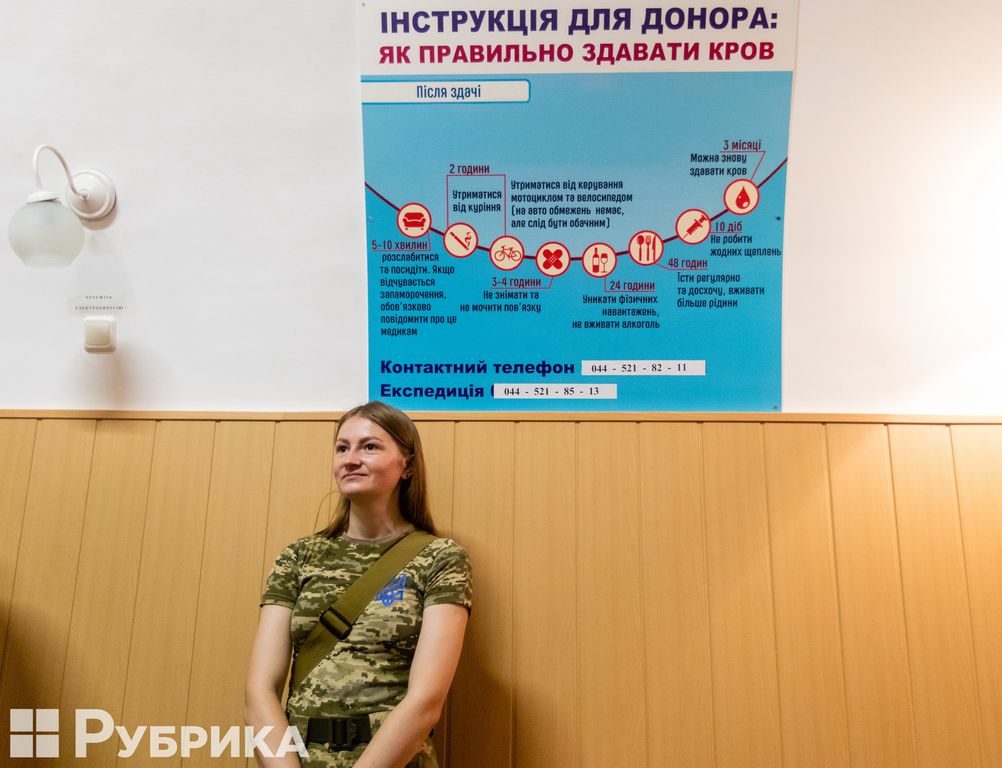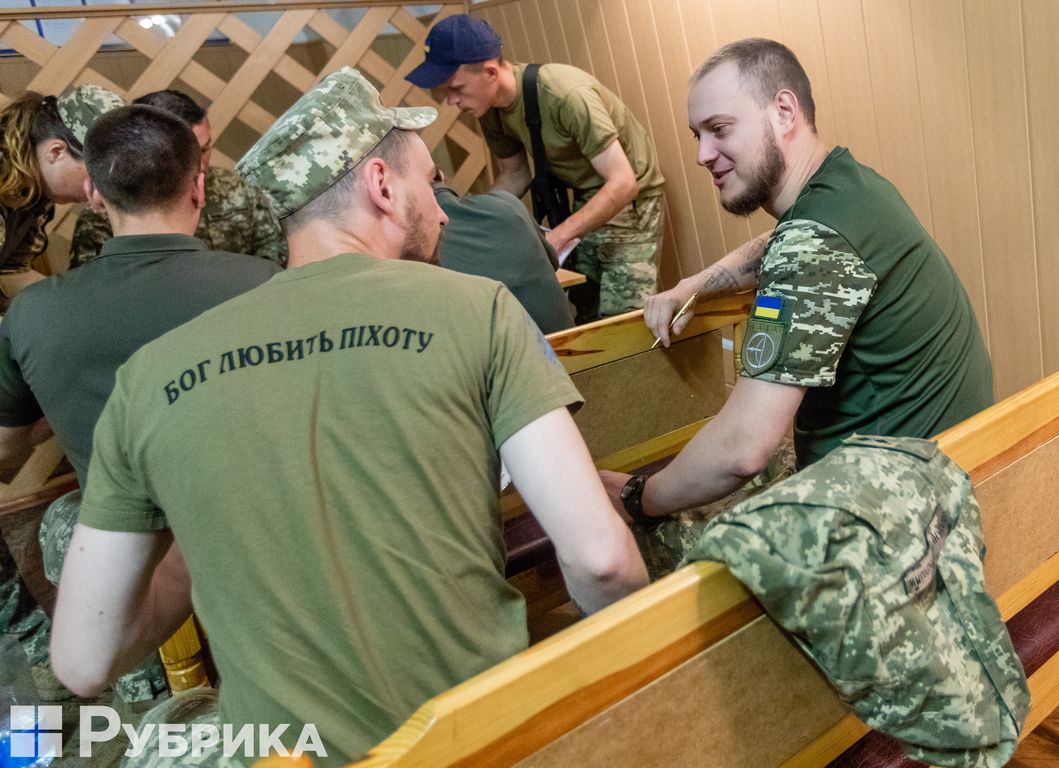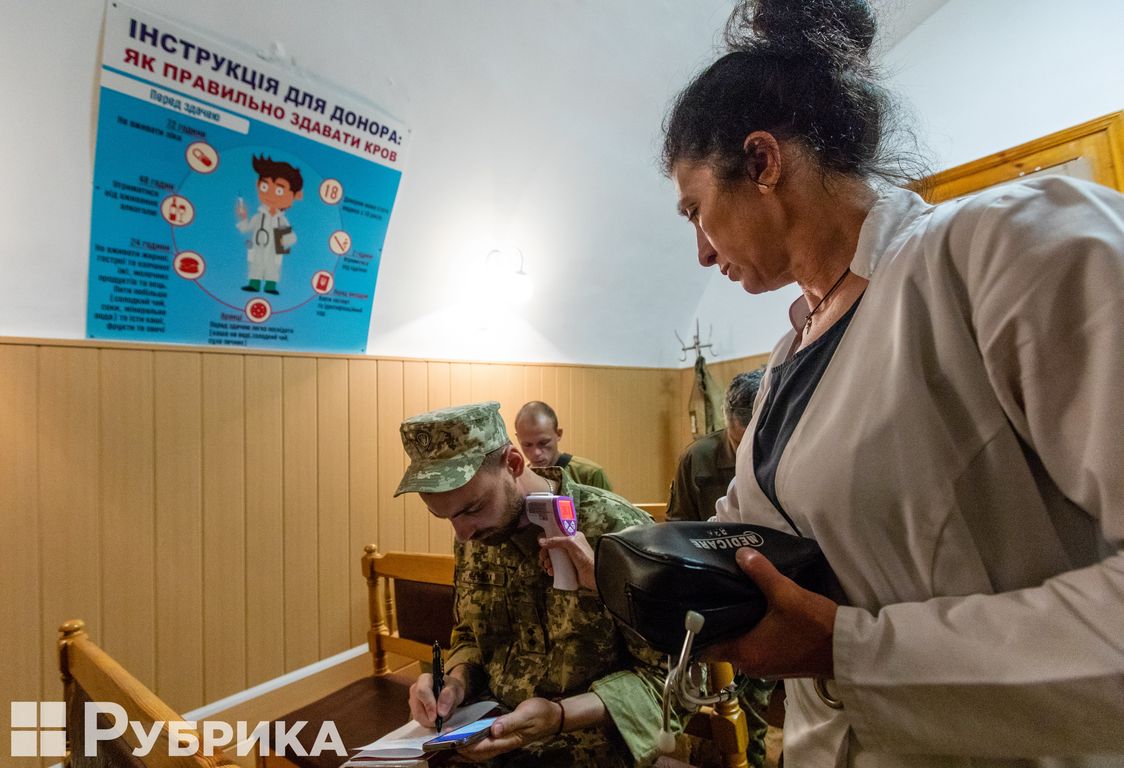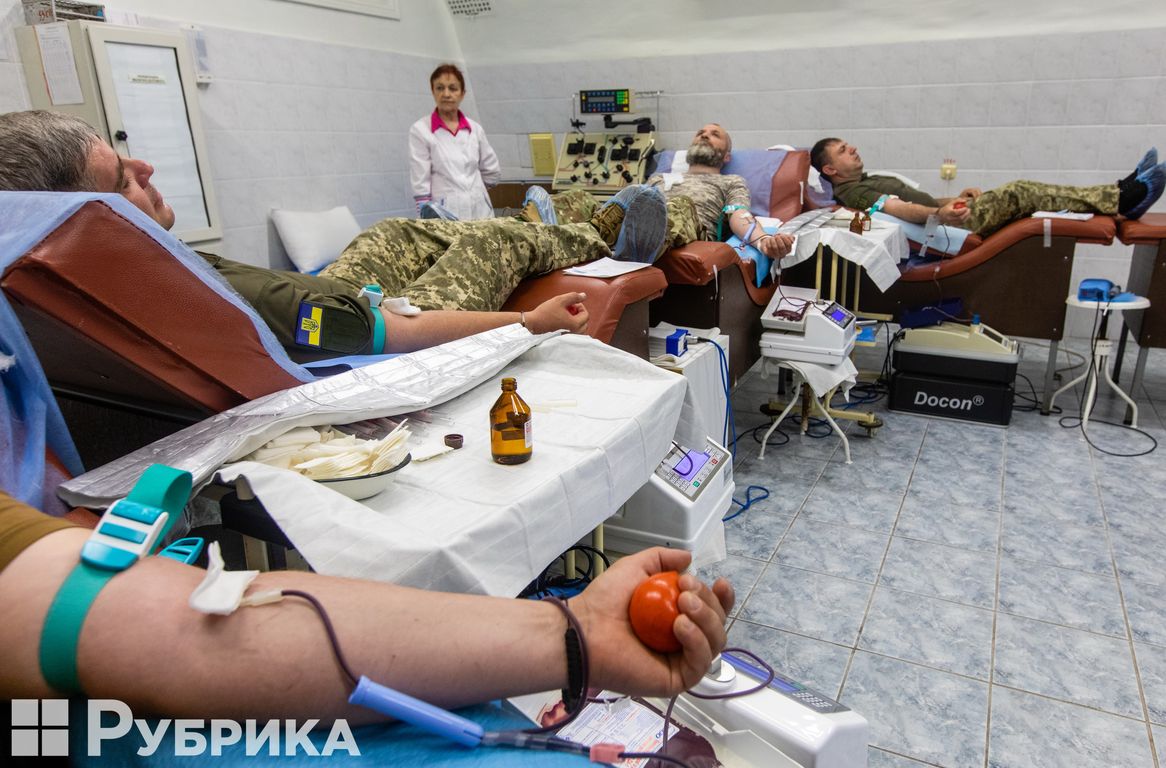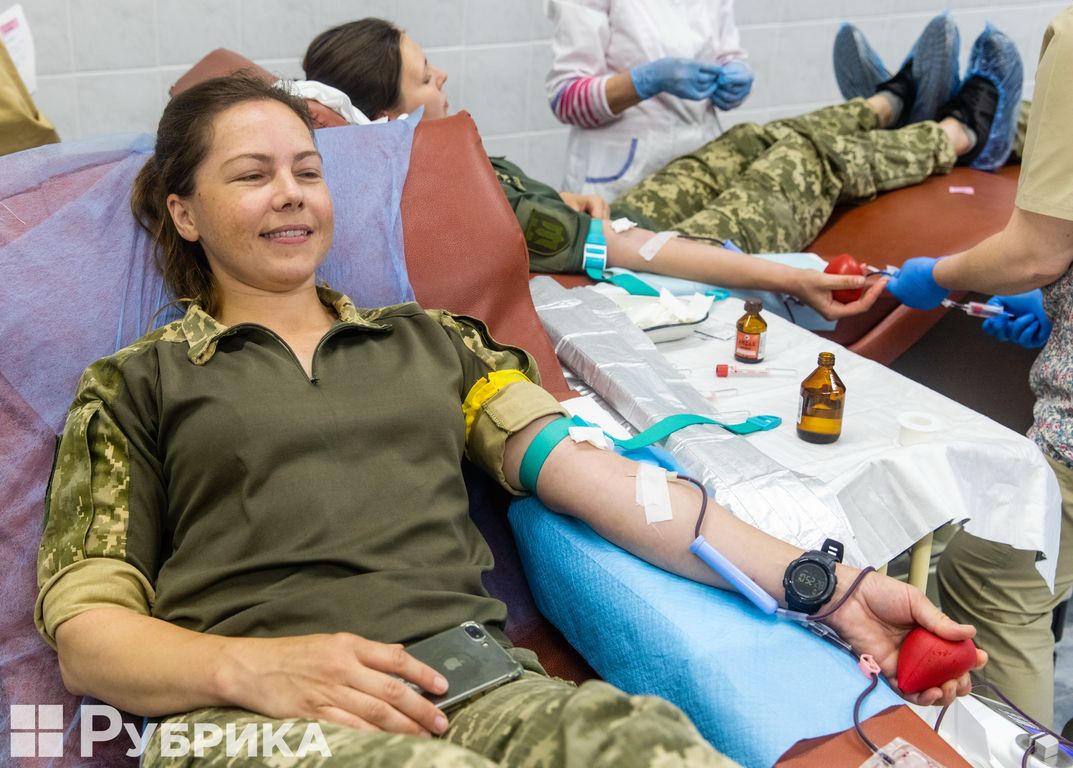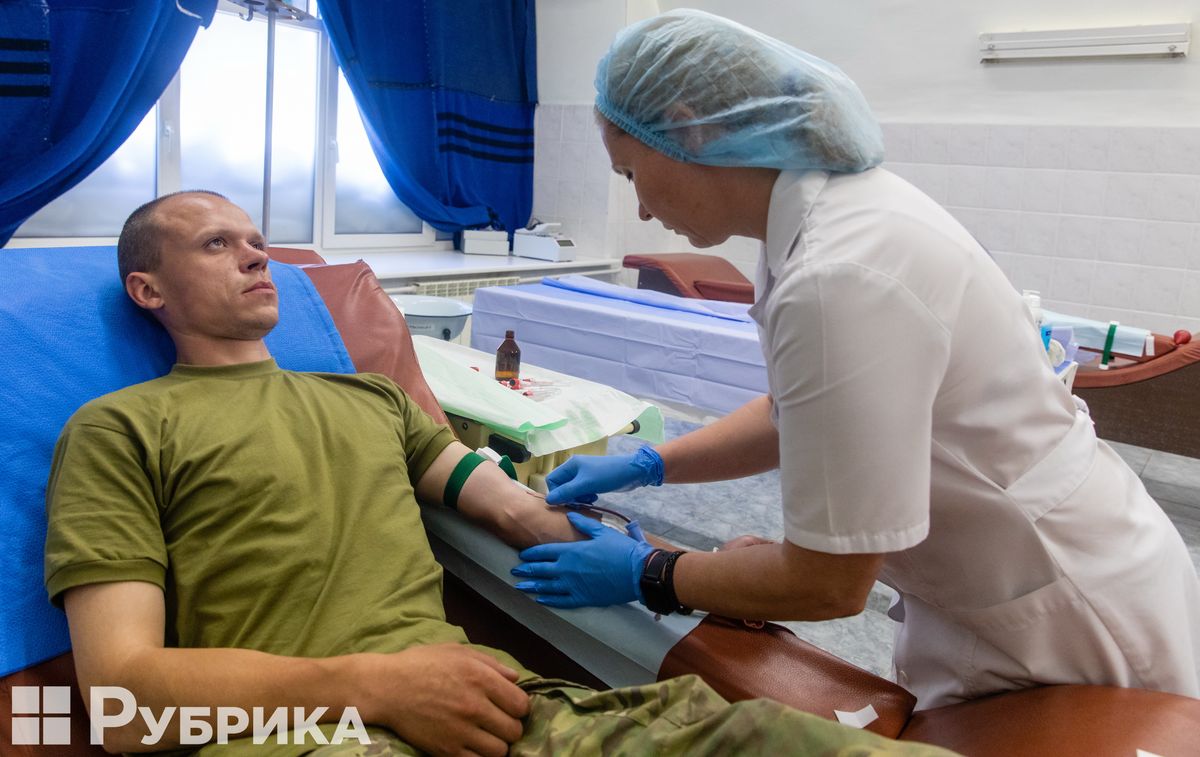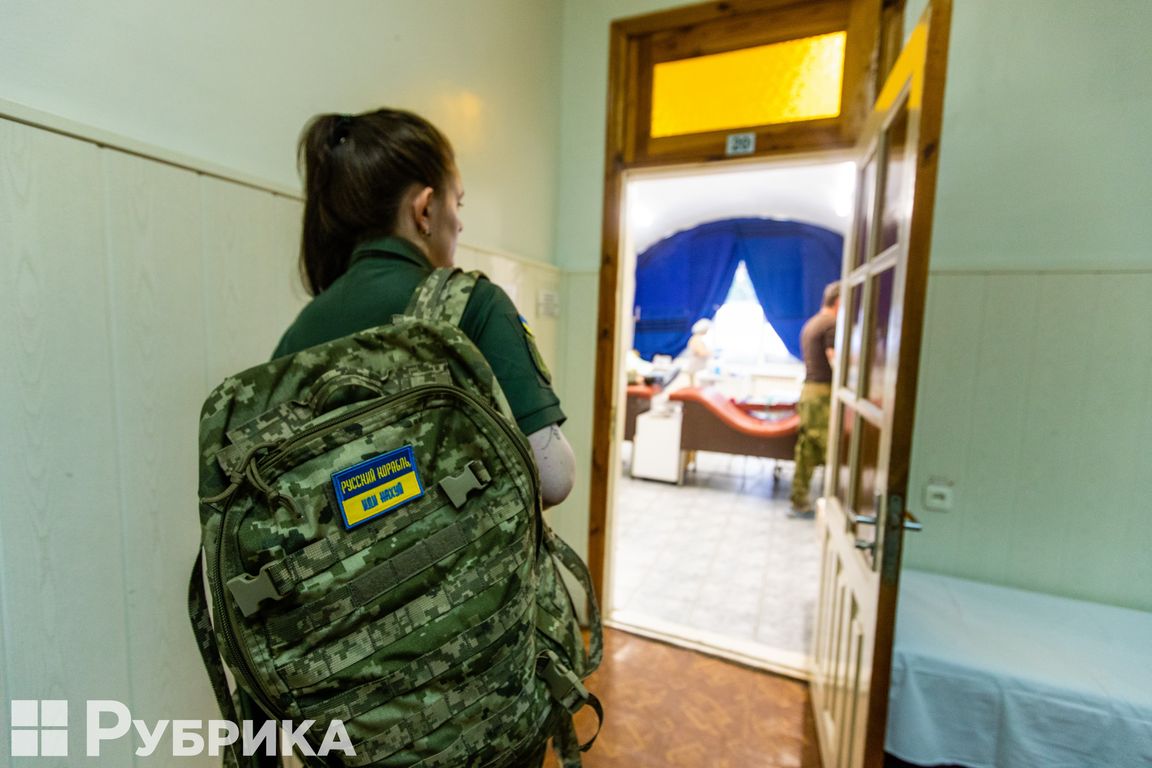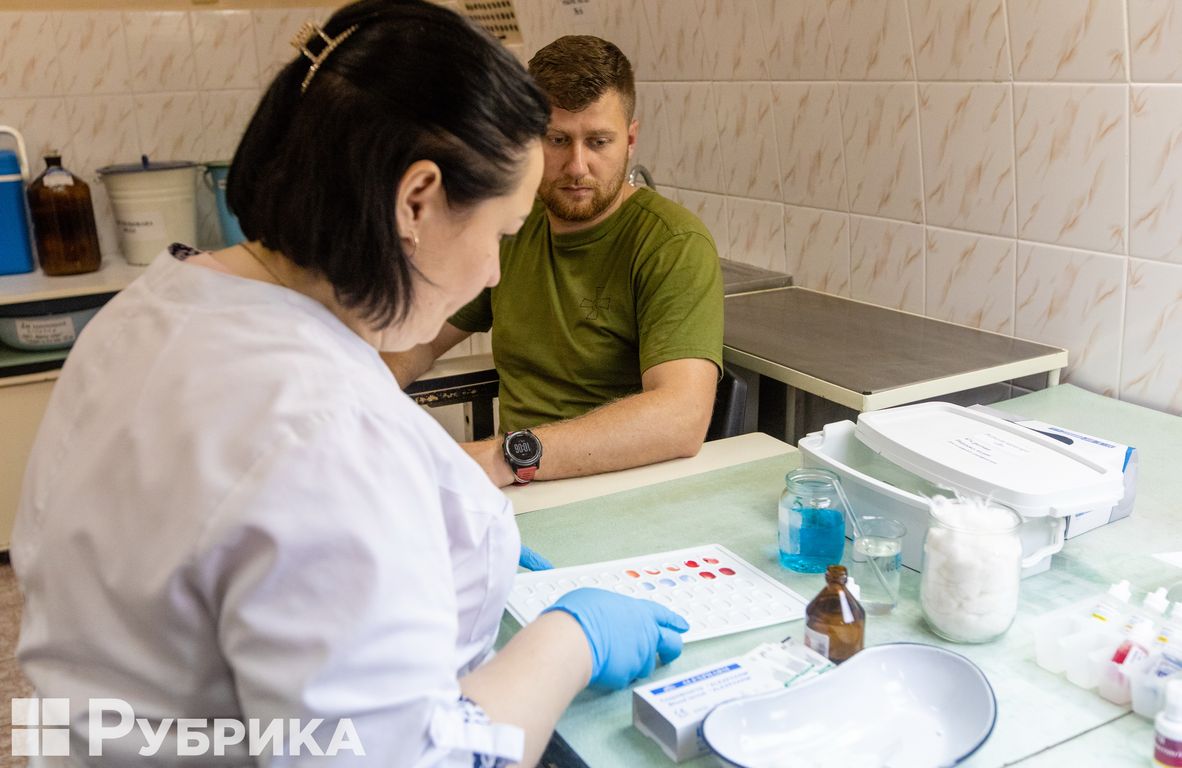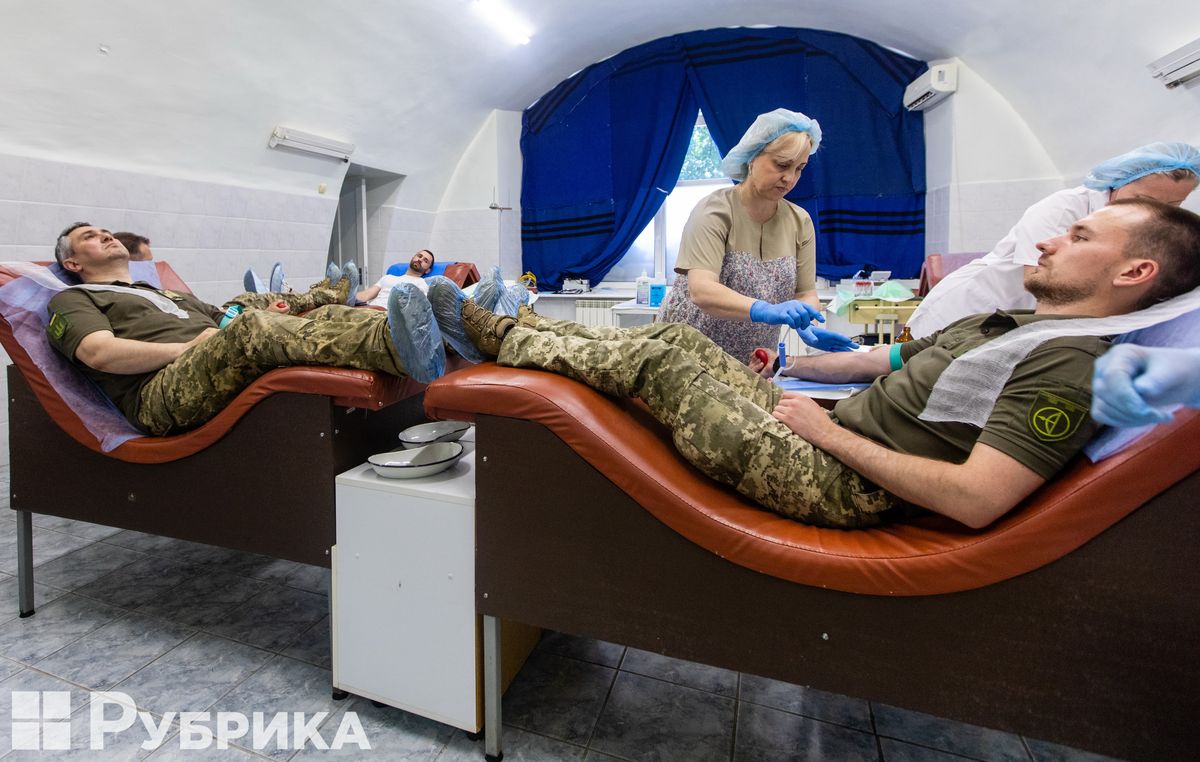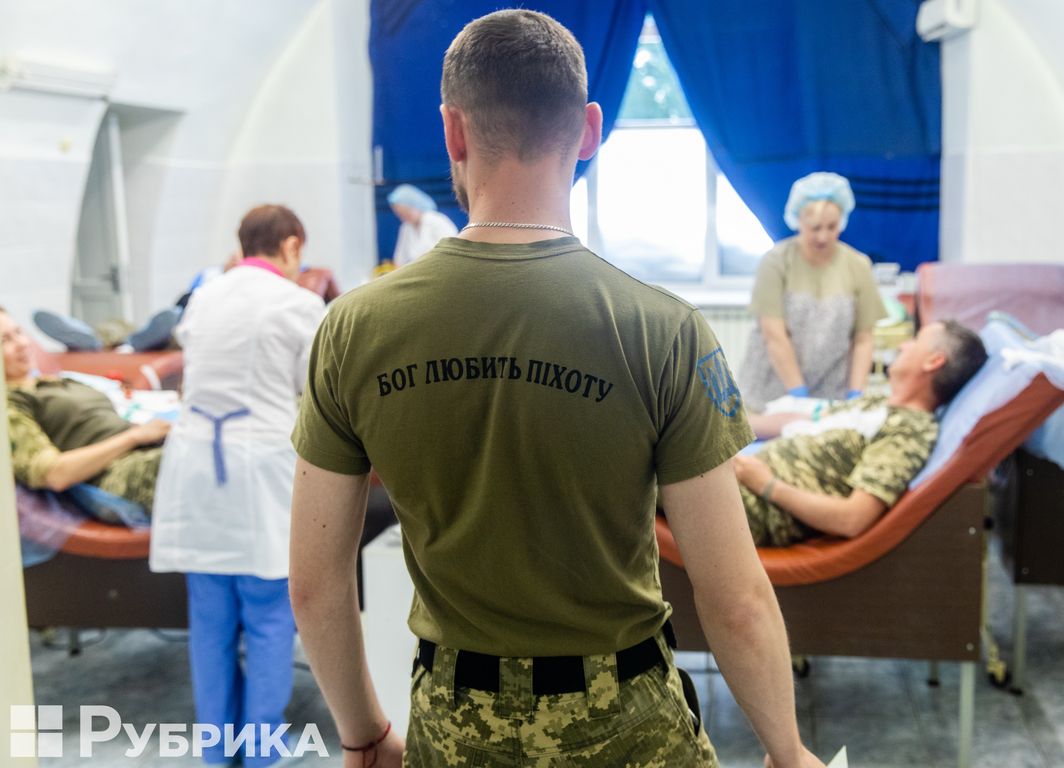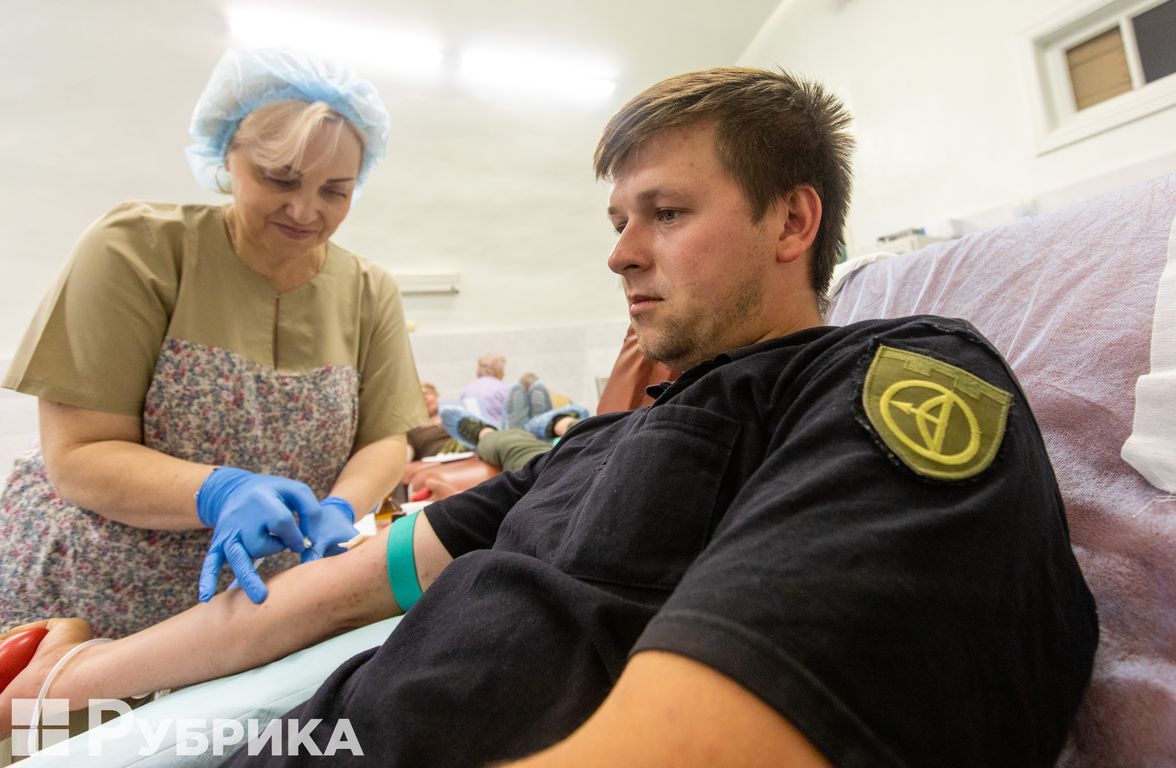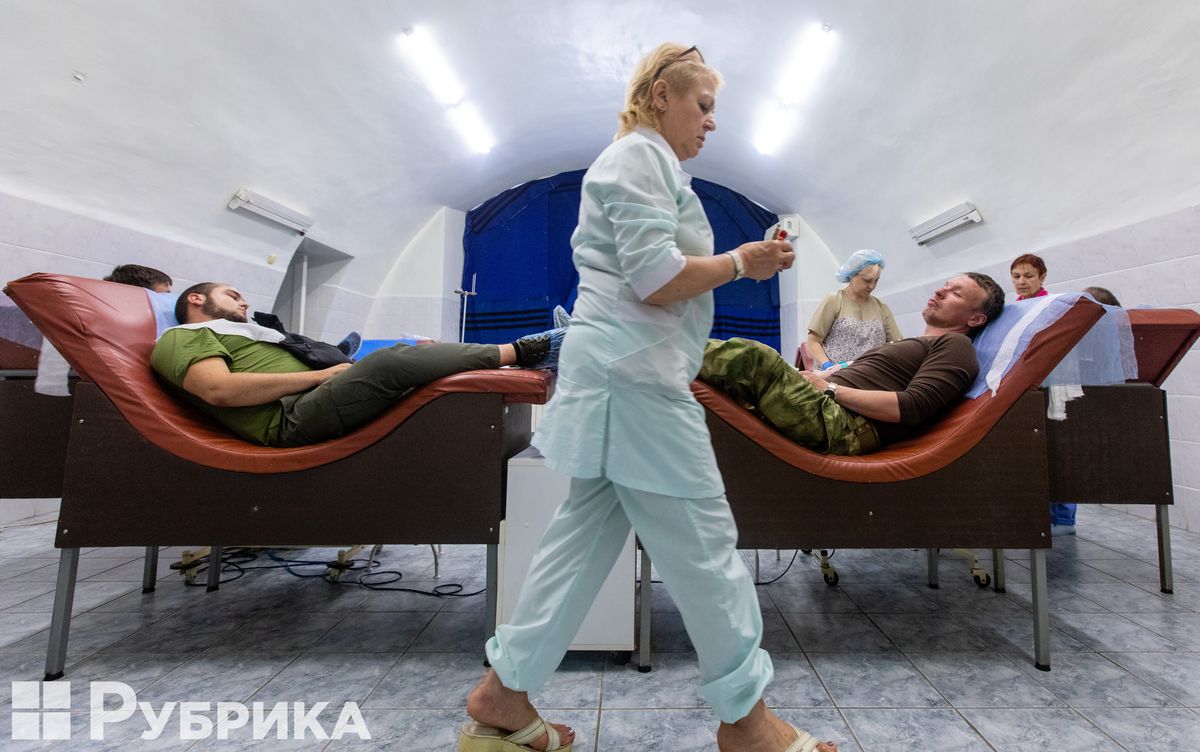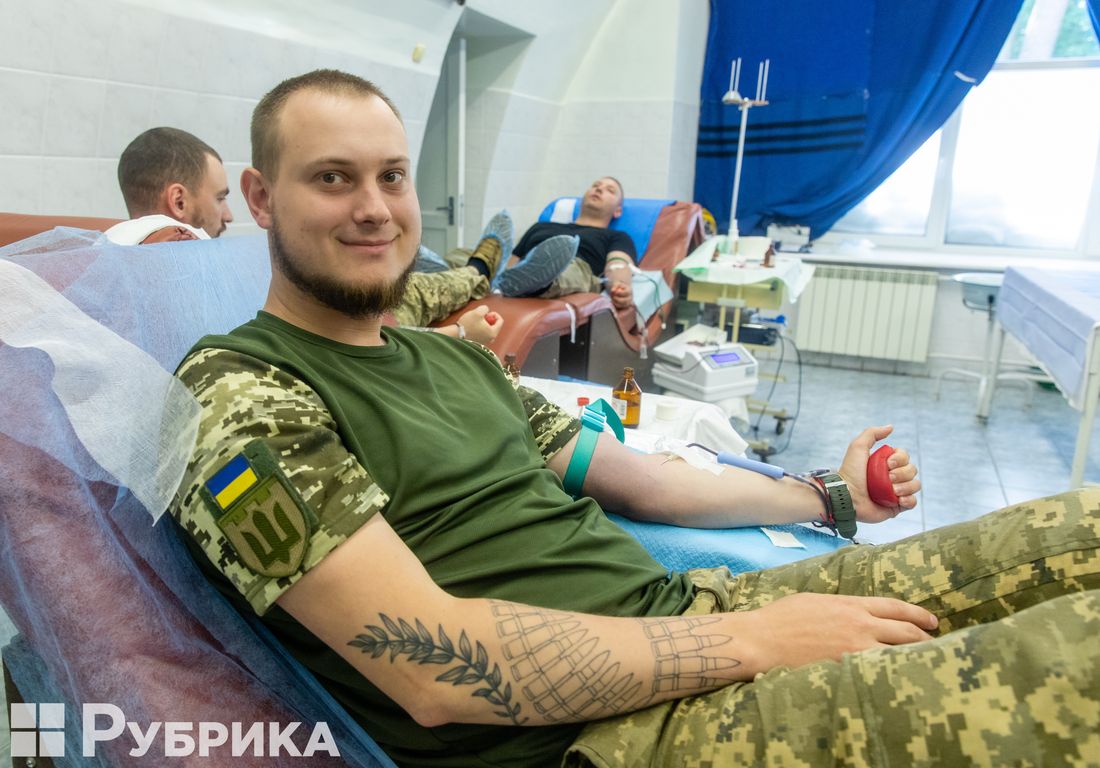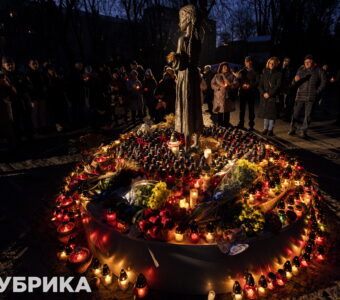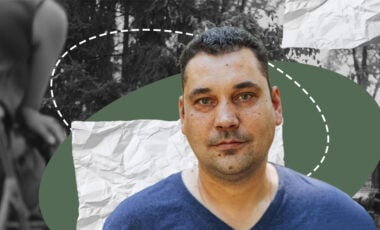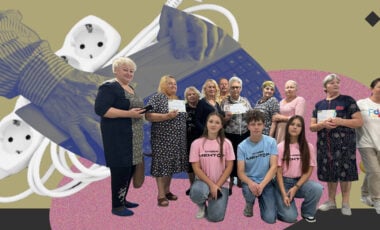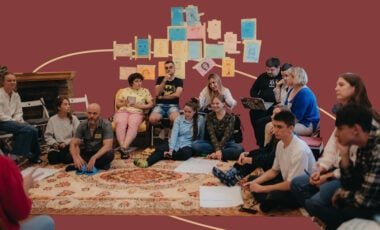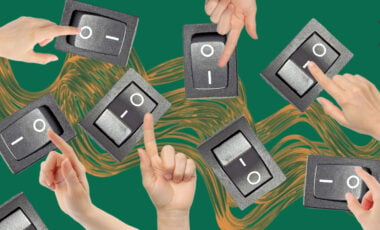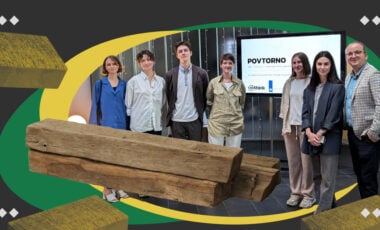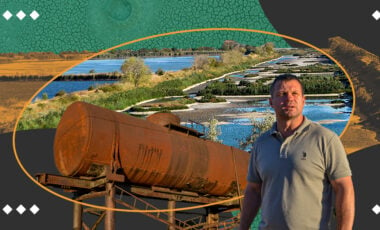Saving lives on the front line from the rear: how Territorial Defense fighters donate blood in Kyiv
On Monday, Kyiv Territorial Defense once again donated blood to replenish the supplies of blood products necessary for the treatment of fellow citizens. Rubryka spoke with them about the donation and russia's aggression.
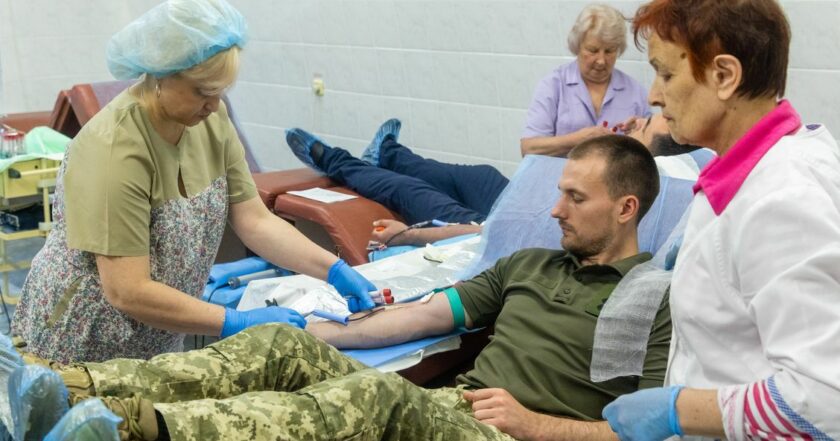
Photo: Rubryka
"Blood brothers are not only about siblings. This is when your blood can save someone else's life," says the 112 Territorial Defense Brigade of Kyiv about donating blood.
Ilona Voloshina is 25 years old. In civilian life, the girl worked with veterans, was one of the organizers of the Invincible Games in Ukraine, and worked to help to return veterans to civilian life. Now Ilona joined the ranks of the Armed Forces.
"I felt that something was going to happen," says Ilona about russia's full-scale invasion. "But I didn't think it would be that big." The girl says that on February 24, she already knew what to do: "I already had a clear plan, packed a backpack, I agreed with my veteran friends where to meet. I called to make sure everything was OK, took my backpack, and went to them."
In the first weeks, Ilona was focused on providing for her units: "I got into volunteering. I thought now we would drive them out of Kyiv, from the east, and get back Crimea. I thought it would all happen so quickly. But in fact, I was not ready that it would be a marathon, not a sprint. And during this time, I changed several types of activities. Now I am, in fact, performing the duties of the public relations department."
About serving in the army, Ilona says simply: "This is right where I should be now." It is not the first time the girl donates blood. She has already done it 15 times. "Donating gives me the feeling that I can simply save someone's life. I am not fighting now. I am serving. Someone is shedding blood in the east and in the south of Ukraine. And I'm giving it here while I can."
Yevhen Vynohradov is 30 years old. In civilian life, Yevhen was an underground electrician and worked in construction. While he is talking about it, our conversation is interrupted by a siren — an air raid signal in Kyiv. Another reminder of the war in Ukraine.
Yevhen had previously served in the army and participated in ATO. "The russians still use scorched earth tactics," he says. And about today's blood donation, he adds: "Perhaps, it will save someone's life. It is important to help people who will need this help."
Vakhtang Kipiani is 51 years old. In civilian life, he is a well-known journalist and historian in Ukraine. And on February 24, he joined the Armed Forces.
"Did I, as a historian, foresee such a great war? I would rather say yes, but I did not think it would be so total. I understood there would be an attack in the ATO territory, from the Crimea side, landing in Odesa, but I did not think there would be an attack on Kyiv. I thought it was unrealistic.
And on February 24, on the one hand, I felt anxiety, which increased. But on the other hand, somehow, it became easier. Certainty came that there is no need to prove to anyone that we (Ukrainian Armed Forces, — ed.) need everyone, no matter what you were in that life that ended."
Vakhtang Kipiani donated blood for the first time: "I am glad there is an opportunity to thank those who are on the front lines."
Vladyslav is 26 years old. In civilian life, he was a project manager. He recalls February 24: "At first there was uncertainty: what to do? Where to go? Then I sat down, pulled myself together, and realized that I needed to go and get weapons." It is not the first time that Vlad donated blood. He became a donor back in 2019. "A strange feeling, but a good deed. We need to donate blood."
By becoming a donor, you can save more than one life. Today, Ukraine needs blood more than ever — both for fighters on the front lines and for victims of russia's terror in the rear.
More photos:
Read about what you need to know if you want to donate blood in Rubryka's materials:


